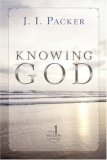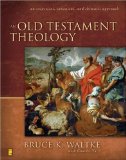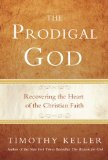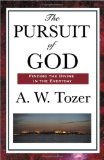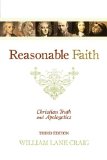“It’s the economy, stupid.”
Whether or not you remember this popular campaign slogan from Bill Clinton’s 1992 presidential bid, 17 years later, it would seem that the US economy still ranks in the top 3 stars that share the media limelight (global security and Michelle Obama’s wardrobe appear to be the other two). Much of the economic news today seems to fall somewhere between “disheartening” and “terrifying.” Indeed, the words “economic” and “crisis,” once mere friends, are now considering marriage, much to the chagrin of their disapproving parents.
I’m not made of wood, so from time to time I struggle to divorce myself from the sense of impending doom that hangs heavy in the air. Praise be, God alone is our provider, and my ultimate hope rests in Him. We’ve heard these sermons, and they make the excellent point that we needn’t worry ourselves to death about money, or even worse, let it take the place of God (e.g., Mt.6:19-34).
Balancing this is the call to be wise stewards with what God has given us, and the very practical matter of deciding how to spend, give and save our money. God is my provider. Amen. Now, what should I do with my paycheck? The parable of the ten talents surely isn’t talking about money alone, but it’s not not talking about money either.
The problem I’ve encountered as I’ve looked into financial matters is that nobody seems to agree about much of anything, save the fact that the world economy is in big trouble. (Read a few articles and financial blogs for a week and you’ll see what I mean.) The whole endeavor seems steeped in opinion and speculation. One expert will tout their prescience of the economic collapse while failing to mention that they’ve also lost their shirt in the downturn.
The same phenomenon seems evident in the world of dieting. Atkins diet? South Beach? Eat your blood type? Mediterranean Diet? Weight Watchers? Shall I even broach the topic of parenting? Attachment parenting? “Ferber-izing?” Co-sleeping? Cry it out? To spank or not to spank? Experts wage war along these and numerous other lines, and lay people such as myself are left confused, wondering how to sift through the claims and find out what’s actually true or false. Unless you make a career out of investigating every truth claim, it seems impossible to sort it out.
Enter relativism. Enter agnosticism. So many truth claims, such passion behind the arguments, so many “studies” that “show” said argument to be correct, so many testimonials, so little time, know-how, and expertise to sort it out. What we are able to sort out are some superficial generalizations upon which everybody agrees: “Don’t spend what you don’t have,” “Exercise and avoid fast food,” “Love your kids and be a vital part of their lives,” etc. At the limit, we find an expert or two with whom we agree, providing us with a permission slip for our actions: Spanking is wrong; Dr. Spock says so.
Is religion any different? “Just believe in something,” “Don’t kill anybody,” “Be tolerant of other beliefs.” There can’t be just one way to Heaven; Oprah says so. Where does that leave us? I sympathize with the honest agnostic relativist, but are there some differences? If agnosticism and/or relativism “works” in other areas of life, is it fair to say it “works” for religion?
I would suggest several differences that set the religios project apart from those mentioned above. First, there is a matter of degree. Religious claims (at least, those of major world religions) are umbrellas under which all other truth claims fall, and a lens through which they are viewed. They are meta-claims, as it were. “Follow this person and lose weight” is a vastly different claim from “Follow this person and inherit eternal life.” When we weigh a truth claim, the scope and import of that claim ought to factor into our consideration. For example, if I claim that crushed ice will chill water much faster than cubed ice, I doubt any reader will struggle for long weighing my claim. The scope is limited to cold beverages, and the importance is minor at best. If I claim that all perceived reality is an illusion, as the Bhuddist does, the scope and consequences are enormous, and merit more thoughtful, probing consideration.
Second, we must note the predictive nature of so much information. Study A shows that gold is the safest investment over time. Study B shows that people who cut their carbohydrate intake by 50% lose an average of 10 pounds a month. Study C shows that spaking children increases their propensity for violent behavior. (N.b., all said studies above were pulled out of thin air for illustrative purposes only.) In every case, we have an (sometimes subjective) analysis and interpretation of data with a tremendous reliance on statistics. Worse yet, all such studies attempt to predict the future in some way. Furthermore, all the studies above interact with a wide variety of variables that can drastically affect the predicted outcome. The differences in analysis, and the affect of unknown or misunderstood variables lead to the sea of differing opinions that litter our bookshelves. Finally, the truth claims of investment, diet, and child rearing are, to a great extent, empirically verifiable. Did you get a good return on your investment? Did you lose weight? Is your child in prison for aggravated assault?
Religious claims, on the other hand, lack many of the characteristics above. At their core, religious claims do not predict the future so much as they explain and assign meaning to reality. “There is no god but Allah and Mohammed is the prophet of Allah,” is not a prediction of the future. It’s an existential claim. How would one confirm that Mohammed is God’s prophet? That all of life is illusory? That there is a Heaven and Hell? These claims are arrived at through different means, and must therefore be treated differently.
While there may be empirical evidence to support religious claims (e.g., the observation of a changed life upon accepting Christ), none of us can verify them in the same way we would verify the efficacy of a diet. Of course there are predictive claims in religion (e.g., if you reject Christ you will suffer eternal torment), but again, these are not empirically verifiable (at least, until it is too late to do anything about it).
Thirdly, and perhaps most importantly, there is a difference between the statement “I don’t know,” and “I can’t know.” The former is simple ignorance, the latter is agnosticism, and there is an enormous, unsubstantiated leap of faith between the two. Every student of apologetics has heard the rebuttal to the agnostic: “How do you know that you can’t know?” Indeed economists have a difficult time predicting market behavior, but does that mean that market behavior is unknowable? Even if we grant that market behavior is unknowable on the grounds that it is attempting to predict the future, why should we conclude that other knowledge (i.e., religious knowledge) is unattainable?
In the end, the agnostic must ask him or herself whence their agnosticism. Is it apathy? Why wouldn’t we investigate the outrageous claim of the Christian faith that our eternal destiny hinges upon how we respond to Jesus? Is it simply because we prefer to spend our time in other pursuits that we (erroneously) find more satisfying? Is it confusion? Are we trying to fit the round peg of religous claims into the square holes of scientific ones? Is it laziness? Weeding through the average religious section in a book store is daunting, after all. Is it wishful thinking? If we cover our eyes and ears, we may not have to deal with whatever unpleasantries lurk in religion’s murky waters; pleading ignorance is a “safe,” easy way out.
Despite my strong words above, I do hold a great deal of compassion for those who would claim to be agnostic. In the information age, we are assaulted on all fronts, and at all times, with truth claims ranging from trivial to terrifying, and monumental to minute. There is no escaping it, save the fleeting release proffered by so many other vices that vie for our time and money, or the simple bliss of shutting it all out. I do not minimize for a moment the depth and breadth of the human struggle for truth and meaning in our world. I pray regularly that God would break my heart for those who are captive to that struggle, and do not yet know the freedom available to them in Christ. Still, we must note that the rejection of Christianity in favor of agnosticism (or any other world view), is not a matter of knowledge alone. In actuality, it is resisting the work of the Holy Spirit (c.f., Jn. 15:26; 16:8-11), for which we will have no good excuse.
Read Full Post »
 a plethora of
a plethora of  I’m picking up this review with Beale’s chapters on the Gospels and Acts. I’m skipping his chapter on Intertestamental Judaism, not because it wasn’t helpful or interesting, but because this review is ridiculously long already. Remember, Beale’s thesis is: what people revere, they resemble, either for ruin or restoration.
I’m picking up this review with Beale’s chapters on the Gospels and Acts. I’m skipping his chapter on Intertestamental Judaism, not because it wasn’t helpful or interesting, but because this review is ridiculously long already. Remember, Beale’s thesis is: what people revere, they resemble, either for ruin or restoration. I recently just finished reading D A Carson’s book,
I recently just finished reading D A Carson’s book, 

